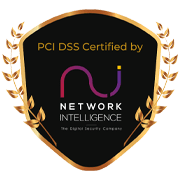How Efficient Medical Records Management Improves Clinical Outcomes
Let me start by saying this: if you’ve ever had to repeat your full medical history to a provider because your records were “unavailable,” then you already know why this topic matters. In my years of working with healthcare clients across various regions, I’ve seen how disorganized medical records can become a silent threat to care quality.
At Redial BPO, we’ve partnered with several organizations to optimize this area because when records are managed efficiently, everything else flows better. Let’s dig into how that efficiency translates to actual clinical improvements.
Summarize and share this article (you need to be logged in to your favorite AI tool):
Table of Contents for How Efficient Medical Records Management Improves Clinical Outcomes
Better Access Means Better Decisions
When medical professionals have timely access to complete patient records, they make better-informed decisions. That’s not just operational logic: it’s patient safety! A streamlined document retrieval process reduces duplication of tests, misdiagnoses, and medication errors.
We’ve seen that clinics with robust records management systems tend to reduce appointment delays by as much as 30%. That’s a real win, especially when specialists are in short supply. When data is accessible, a patient’s care path becomes more proactive than reactive.
Whether digital or hybrid, efficient systems allow for immediate access to past diagnostics, previous treatments, and allergies. These details might sound minor, but they can make the difference between a smooth recovery and a critical oversight.
Reducing Cognitive Load on Clinical Staff
Clinicians already carry an immense mental workload. Add poor documentation systems to the mix, and it’s a recipe for burnout. That’s where proper records management becomes an unsung hero in improving workplace morale, and indirectly, care quality.
By outsourcing this function through a reliable healthcare bpo, organizations can relieve clinical staff from low-value tasks like document scanning or retrieval. In one project we supported, nurses reported 25% more time spent on direct patient care after workflow improvements.
Better workflows don’t just help staff, they also reduce patient wait times and boost overall satisfaction. When nurses and doctors are more focused, patients feel heard and understood. That human connection, enabled by backend efficiency, is key.
Enhanced Compliance and Security
With the increasing focus on data privacy (HIPAA, GDPR, etc.), medical records management also carries legal weight. Mishandling sensitive information isn’t just a reputational risk, it’s a financial one.
Through BPO partnerships, providers can implement standardized processes that ensure secure handling, encrypted storage, and controlled access. This is especially critical in multi-site practices or those serving across borders.
Having a specialized team manage these workflows ensures audits are passed, red flags are addressed early, and trust is maintained with both regulators and patients. We’ve seen this instill a stronger compliance culture across organizations.

Analytics and Predictive Value
Here’s something many still underestimate: well-organized records are fertile ground for analytics. Structured data can reveal patterns that improve population health strategies and even individual treatments.
Imagine being able to predict readmission risk based on care history or identify patients who might benefit from preventative services, all driven by data already in the system. That’s not science fiction; it’s happening today.
When paired with external expertise via healthcare bpo services, healthcare organizations can extract real value from their archives. We’ve supported teams that have used these insights to improve outcome scores in value-based care models.
Conclusion
If we want to improve clinical outcomes, we can’t overlook what happens behind the scenes. Efficient medical records management reduces risk, improves access, empowers staff, and unlocks insight. It’s the kind of work that may never get the spotlight, but it’s what allows great care to happen consistently. As someone who’s worked shoulder to shoulder with both front-line providers and operations teams, I can confidently say: this is where transformation starts.
FAQ About How Efficient Medical Records Management Improves Clinical Outcomes
1. What is medical records management?
Medical records management involves the organization, storage, retrieval, and protection of patient information, whether physical or digital.
2. How does poor records management affect patient care?
It can lead to misdiagnoses, duplicated tests, delayed treatments, and overall reduced quality of care.
3. Can a healthcare BPO handle sensitive data securely?
Yes. A qualified healthcare bpo partner will comply with HIPAA and other regulations to ensure all data is encrypted, access-controlled, and audit-ready.
4. Is outsourcing records management cost-effective?
Absolutely. It not only reduces staffing costs but also improves efficiency and reduces risks, saving money in the long run.
5. How does good records management support analytics?
Structured and organized records provide a solid foundation for predictive analytics, improving population health strategies and clinical decision-making.
What Clients Are Saying About Redial BPO’s Outsourcing Services
Hear what a Redial BPO client in the healthcare industry has to say about their experience in partnering with us. Take a look at the interview below:

I’m the VP of Client Services at Redial BPO. I’m passionate about CX, building strong client relationships, and blending tech with human talent to deliver top-tier service across industries.






